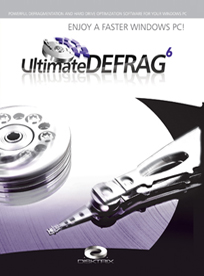Defrag 101 - Page 3
“Why Addressing File Fragmentation Only Gives About 10% Performance Increase”
Defragmentation, and reduced file read performance, is only important when you are accessing the fragmented files. The  amount of decreased performance is proportional to the number of fragments, the size of the file and the average fragment size.
amount of decreased performance is proportional to the number of fragments, the size of the file and the average fragment size.
Let's say you defragment regularly using the default Windows defrag, most of the time you will only have a very moderate number of fragmented files. Let's pick a realistic number of 150 fragmented files.
Out of the thousands of files you might access on a day-to-day basis 150 fragmented files is "negligible" relatively speaking. The perceived and actual performance loss is also negligible.
Sure, you can defragment using any defragmentation utility you like - but at best, you'll see a 0 to 10% performance increase. You will not perceive any performance increase.
At the end of the day, your entire file system and drive is not optimized, so you can defragment until you are blue in the face.... you won't see much improvement in performance.
Is this the thing you expected to hear from a company who makes a defragmenter?
Again, it's not so much about the fragmented files but more about the overall file placement of all the files on your drive. Only UltimateDefrag lets you optimize your overall file placement for raw hard drive file access performance up to 600% better than what you may be experiencing.

